Protestant and Catholic Beliefs Series Conclusion
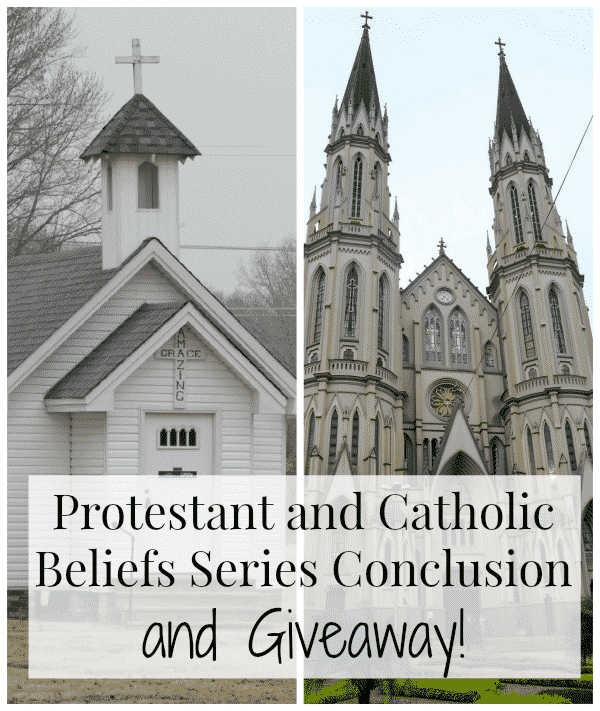
This post is the conclusion post to a series entitled Letting God Lead: My Journey Through Protestant and Catholic Beliefs. If you are new to this site or this series, I HIGHLY encourage you to check out the rest of the series as well. *This post contains affiliate links.
A little over a year ago, I began a journey–a journey to find out the truth behind Protestant and Catholic beliefs–and what a journey it has been!
I’ve read countless books and articles, taken classes and talked with priests, debated apologetics, attended mass, listened to your stories, and shared my own. I was even on the radio! (Click here to listen to the recording.)
We covered a LOT of ground in this series, and I hope it’s true to say that we all learned a lot.
- In the series introduction, I shared my story: How I grew up (and still am!) a very dedicated, Bible-believing Christian, and how I got started on this journey in the first place.
- Next, I did my best to dispel 10 Common Catholic Myths in the hopes that everyone following along would be able to do so with an open and informed mind.
- We discussed the Eucharist, and I presented solid evidence concerning whether or not it is the true Body and Blood.
- We discussed “Sola Fide” and whether faith alone is enough or if we need something more.
- We discussed “Sola Scriptura,” talking about important issues such as tradition and the authority of the church, the Bible and the first century apostles.
- We discussed the history of the Catholic church and evidence for/against the Apocrypha.
- I offered some insights on what Catholics really believe about the Pope, priests and confession and why.
- And then I did the same thing with the issues of Mary, Saints and Statues.
- We took a look at Biblical and historical evidence for/against Infant Baptism.
- As well as Biblical and historical evidence for/against Purgatory and Indulgences.
- And then last week, we capped off the series with a lighter topic: Why do Catholics do all the weird stuff they do?
Of course there will always be more to say and more to cover, but hopefully this series has been enough to get you thinking and researching for yourself, instead of simply blindly believing what you’ve been taught from birth. Because when I examined what I’d always been taught, I found out a lot of it was wrong. My teachers were wonderful people, but so many of the principles they taught me simply were not Biblical. I don’t want you to make the same mistake.
Whether you are Protestant or Catholic–honestly, I could care less. Maybe I should? But it really doesn’t matter to me. What matters to me is that you have researched the issues yourself, that you know what and why you believe, and that you can confidently defend your beliefs to others. That you believe on purpose because you really know it to be true–not that you believe by default because someone told you something and you didn’t bother to fact check for yourself.
So now, for the moment you’ve all been waiting for–what did I decide???
[thrive_leads id=’23166′]
Is the Eucharist the Real Body and Blood? Yes, I believe it is.
From the language Jesus used to the Jewish peoples’ reaction to the early Church’s response–all of the research I’ve done so far leads me to believe that it has to be real. (Find the information that lead me to this decision in my post: Is the Eucharist Really Just a Symbol?)
Is Faith Alone Enough? No, I believe God expects something more.
To be very clear: Both Protestants and Catholics agree that you cannot earn your way into Heaven through works. We are saved because of God’s grace, which allows us to have faith. But in light of the verses I shared in my Is Faith Alone post as well as the following two arguments, I have to agree that yes, you do need faith, but that you can’t just stop there. Once you are already “saved” (or “justified”), your life needs to reflect that. I think, deep down, many Protestants would agree. You can’t just say a prayer and then go on your merry way.
Argument #1: Protestants say that nothing we DO can get us to Heaven. Yet, the very act of choosing to believe is a verb–something we DO. God doesn’t force us to be Christians against our free will. We choose it. So we can’t reject ALL works, because believing is a work itself.
Argument #2: If simply believing were enough–well, even satan and his demons know that Jesus is God. They know He is the only way to Heaven. If all you had to do was believe–wouldn’t that make satan a Christian? Yet, I’m pretty sure we would all agree that’s preposterous. Why? Because he certainly doesn’t act like a Christian! He doesn’t repent, or submit or act like a Christian–all things Christians DO. So simply believing in Jesus can’t be enough.
So in light of alllll of the verses I listed in my Is Faith Alone Enough? post (check them out!) combined with the two arguments above, I can only conclude that we HAVE to play a role somehow. Faith alone is not enough. I have NO IDEA where that line is–concerning what we have to do, how much we have to do, etc, but I have to believe that something more is required.
Who has the Ultimate Authority–the Bible or the Church? The Church… I think? But which one??
Based on the findings I shared in Who Has the Ultimate Authority? A Biblical Look at Sola Scriptura, I strongly believe that the Bible was never meant to be a comprehensive how-to guide that covers every topic. It IS infallible on the issues it covers, but it doesn’t cover everything, and it leaves a lot of things open to (mis)interpretation. So, while I am definitely very much a Bible-believing Christian, I have to agree that we need more than just the Bible; we need the rest of the teachings and history–which we *should* find in the church.
However, while I totally understand and support the need for and appropriateness of having the church be our authority (under Christ of course!), I did not see any evidence that points to the *Catholic* church having to be that authority, instead of the church in general.
Catholics believe that the Catholic Church we have today is the same church the Christian churches had in the first century, but is it? How do we know they didn’t get off 5 degrees somewhere and end up way off course today? How do we know they clung to the right things? The pharisees thought they were experts at keeping the law, but they got in big trouble when Jesus came to town. I mean this in a polite and sincere way, but how do we know the Catholic Church hasn’t done the same thing? This has been my main nagging doubt this entire time, and it has yet to be resolved.
(And yes, I know that Jesus would send the Holy Spirit to guide the Church and keep her from error, but what proof is there that that verse is talking about the *Catholic* church–not the church as a whole or a different denomination?)
So…. I like the idea, but I haven’t been able to fully accept it yet. (Read more in my post: Who Has the Ultimate Authority? A Biblical Look at Sola Scriptura)
Is the Apocrypha Scripture? Don’t ask me; I have no idea.
Did you see the chart at the end of my History of Christianity post?? All of the information is hopelessly contradictory!! And while I can throw out several of the arguments on one side or the other (the books were found with the Dead Sea Scrolls–we checked!), I still see very logical points on both sides. So quite honestly, I have no idea. I am ever so slightly leaning towards the Catholic perspective since they were in the Bible for hundreds of years before Martin Luther took them out, but I could easily go either way. I simply don’t know at this point.
Concerning Priests, the Pope and Confession: Makes Sense to Me
I like the idea of having a God-led priest instead of every person misunderstanding the Bible for him or herself. Obviously with everyone being able to come up with whatever interpretation they want, we aren’t doing a very good job. (30,000 Protestant denominations!) Obviously not to say we shouldn’t think for ourselves (this whole series is so that you will!), but having one trusted standard sure seems nice right about now! (But is Catholicism it? I don’t know!)
I don’t have a problem with the pope being infallible (I don’t know if he IS; I do believe it is possible). I’ve always liked the idea of confession and thought it was a good practice. I do believe priests could have the power to forgive sins. It does seem a little unnecessary to me, but that’s probably just my upbringing. I don’t have any theological problems with any of it. Logically, it makes a lot of sense.
Concerning Mary, Saints and Statues: I Still Think it’s Weird… But There are Much Worse Things It Could Be…
I do NOT believe Catholics worship Mary, saints or statues. (Well, maybe some do in other countries, but your average American Catholic–no.) I personally think some Catholics pay them more attention than they maybe ought, but then again, you’re going to have people mess things up in any religion.
Mary: In all honesty, I simply don’t “get” all the hubbub about Mary. Yes, she said yes to God, but people say yes to God every day. Even if she is the most important human in history (and I don’t have a problem with that)–she’s still human. Even if she were sinless (and I don’t have a problem with that either)–it was because God preserved her from it, not because she did anything herself to deserve it any more than the rest of us. I understand that Mary is supposed to point us to Jesus, but I can’t help but feeling that, for some people, all the Mary stuff has become a distraction.
Saints: I don’t know if I feel particularly compelled to pray to any Saints, but I don’t necessarily have a problem with the practice **when done according to official Catholic doctrine.** I don’t think it’s really necessary, but I don’t think it’s sinful, either.
Statues: As long as Protestants have nativity scenes, they can’t point fingers at Catholics because it’s the exact same thing. I have zero problem with statues (when used appropriately).
(For more information on this topic, please check out my post: What Do Catholics Really Believe About Mary, Saints and Statues?)
Is Infant Baptism Scriptural? I’d personally rather not wait.
I don’t know that Scripture is incredibly clear either way, and I say this because I can easily make good, Scriptural arguments for either side. Plus, when you look at early Church history, they did it both ways. BUT since it can’t hurt and it can potentially offer many huge benefits, according to Catholics–why wait? We baptize our babies as infants.
(Read more about the subject in my post: Infant Baptism or Believer’s Baptism? Which is Correct?)
Are Purgatory and Indulgences Scriptural? Probably
As I was researching for my post on Purgatory and Indulgences, I was surprised to find so many verses that *could* reference Purgatory. And honestly, the teachings make sense. I don’t know if I believe in them for 100 sure at this point, but I don’t have a problem with either of them. (Read more in my post: What is Purgatory? What are Indulgences?)
So What Did I Decide?
I decided I wasn’t ready to become Catholic at this point. We attended all of the learning type classes and then dropped out before the rites. We still attend Mass every Sunday.
The reason I chose to drop out is because when I looked up what the rites of sending and election are (the “ceremonies” we would go to next), I read that I would be asked “Do you believe all that the Catholic church teaches to be true?” And my sponsor (my husband) would have to vouch for me.
Well, I can’t in good faith go up in front of an entire church and declare that I believe everything the Catholic Church teaches is true. I’m not saying it’s not. I’m saying: I don’t know. I still have questions. I’m still learning. I’m still seeking.
I haven’t read the entire Catechism yet. I haven’t read all of the Apocrypha yet. How can I state I believe they are true if I don’t know what is in them? At this point, I can’t.
I’ve changed my mind on a LOT of really important things–the Eucharist, confession, praying to the saints… I’ve learned a lot and I’ve come a long ways. But God isn’t finished with me yet.
So the series is done for now, but that doesn’t mean our journey has to be over. Go back and read through the posts again, really mulling over the points. Get and read the books above. Talk to your priest or pastor. Talk to me; I’d love to hear from you!! Don’t let your journey stop here.
Here’s a list of topics we’ve covered so far, in case you still need to go back and catch any you missed.
The Day I Realized My Religion Got it Wrong
10 Common Catholic Church Myths that Critics Believe
Is the Eucharist Really Just a Symbol?
Who has the Ultimate Authority? A Biblical Look at Sola Scriptura
A Brief Look at the History of Christianity
What All Christians Should Know About Priests, the Pope and Confession
What Do Catholics Really Believe About Mary, Saints and Statues?
Infant Baptism or Believer’s Baptism? Which is Correct?
What is Purgatory? What are Indulgences?
Why Do Catholics….? Honest Answers to Your Burning Questions
Protestant and Catholic Beliefs Series Conclusion
So that’s an update on me–how are you doing? What questions are you still wrestling with, if any? Let’s discuss!

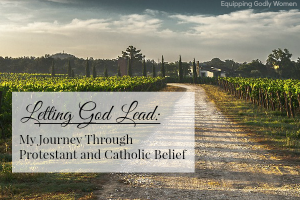
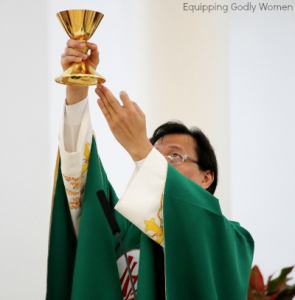
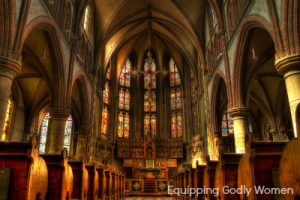
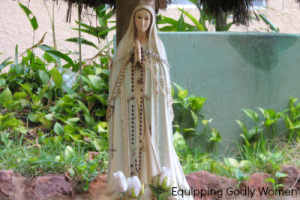
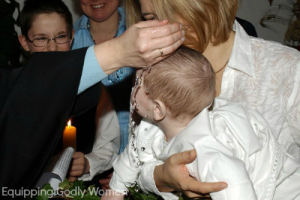



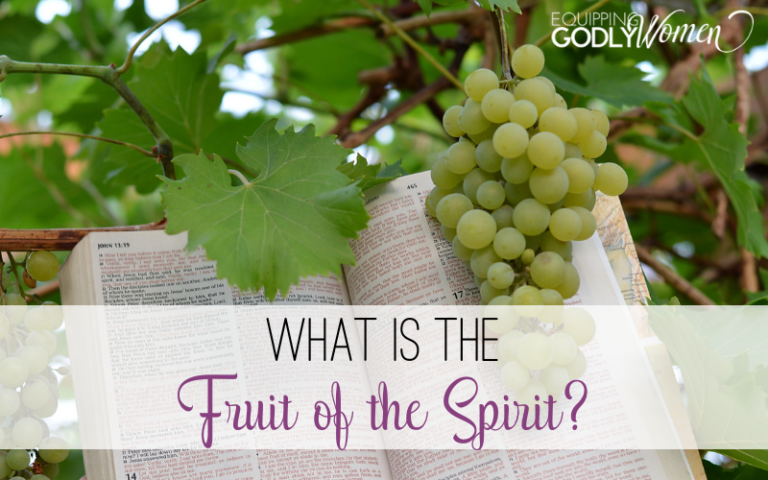

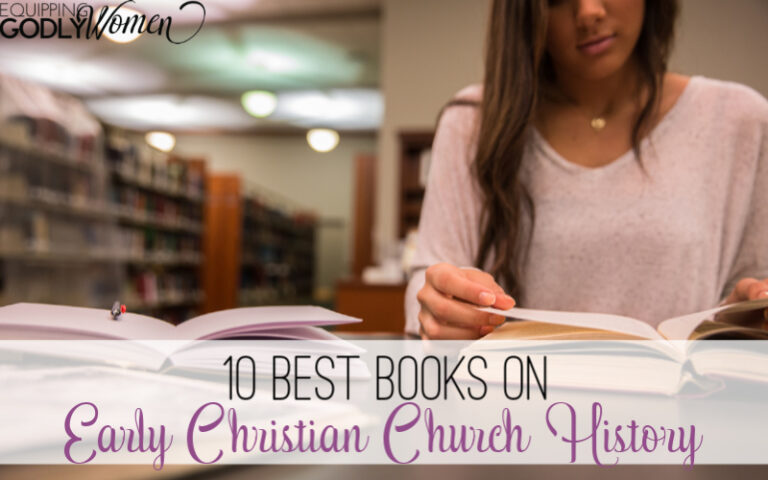
WOW, Brittany! What an amazing journey this has been for you. You are a great example of what it means to go out and find your OWN faith! It may be easy to accept and adopt whatever one was taught as a child, but it is NOT the most rewarding. Thank you for allowing us to join you on this journey. Keep seeking, friend.
It has been insane, that’s for sure. But finding the truth–whatever that is–is always worth it. 🙂
Hi Brittany, I am glad someone linked to your final post on Facebook. I read the first two, suscribed by email and never saw another one. Gmail has its own mind in sorting emails and I don’t like it.
I look forward to catching up, and I am glad you are still asking and seeking. Open dialogue between denominations like this is so necessary.
Maybe these references would help for tracing Roman Catholic roots (if you haven’t already seen them): catholicapologetics.info/apologetics/protestanism/origin.htm
God bless!
Yes, my newsletters generally wind up in the “promotions” tab. I’ve heard you can move them to the main tab by simply dragging one over though! And I will definitely check out that link. Thank you!
I highly recommend reading “the lamb’s supper” by Scott Hahn. He shows you the relationship between the book of Revelation and the Mass. “Mass is Heaven on Earth”
Good to know! I’ll admit I know very little about Revelation.
I also recommend Scott Hahn, Rome Sweet Home— I have to admit that I howled with laughter at the part where he said that he thought Revelation “just plain weird” until he brought his Bible to a Catholic Mass one day, and then things started to fall into place.
I have loved this series and will be continuing to follow along.
I’m glad you enjoyed it! And I look forward to continuing to see you around 🙂
Sorry to see that you didn’t become Catholic yet.
BOTH my husband & I are converts!
LOVE the Church…
we are late 60’s…
both been to a few different Churches…
any how we KNOW we are HOME…
and LOVE it.
God Bless you & may our Holy Spirit help you see the road Home clearly.
That’s the sentiment I keep hearing over and over! Thanks for the well wishes 🙂
Thank you so much for this series. I stumbled across it one day and I’ve found it really thought provoking and enlightening but at the same time I think you’ve been very balanced in your arguments.
Thanks, Sarah! That was my intention all along–to get people thinking and questioning, without necessarily trying to take one side or the other.
Thanks for sharing your journey with us.
Hi Brittany. Although I only read the post on purgatory and indulgences (which I loved), I once again kind of accidentally landed on this post and like others, I was heavy hearted at the end. I totally understand and respect your wanting to be sure and hope you don’t mind my two cents, which of course I hope are God’s through me.
This is what I wanted to say yesterday. When you decided to marry your husband, hopefully, you knew the most important things about him and that helped you to decide to spend the rest of your life with him. You did not know everything there was to know (that would be boring anyway) and may have been a bit disillusioned at times in the beginning.
When it comes to the church you have all of the important stuff and even more than most of us who were blessed to have had Her all along. Anyway, I wanted to say, come on in and receive Jesus and then you will be sure! I didn’t have the courage.
But then this morning, I read this and once again, thought of your situation.
“And it happened that, while he was with them at table,
he took bread, said the blessing,
broke it, and gave it to them.
With that their eyes were opened and they recognized him” Luke 24:30-31
Blessings on your journey. I am praying for you. Life is the Eucharist.
Michelle
Yes, I did get to know my husband before I married him. That is my point exactly. I didn’t meet him, learn a couple of the most important facts about him,, and then make a quick decision. I really got to know him by doing life beside him for some time so I didn’t just know about him, I knew him. That’s exactly what I need to do with the Church to be able to convert. It’s not enough to just know a couple facts and commit based on a few (or several!) good recommendations. I still need to learn more. Thanks for the encouragement though. And no need to lack courage. I don’t bite! I promise 🙂
Well, how about meeting Jesus? 🙂
Brittany mentions above that she believes that the Eucharist is the Body and Blood of Jesus Christ– well, there’s always Eucharistic Adoration: maybe there’s the option of engaging with Him directly in this manner outside of receiving Him, asking Him her questions, and listening as He speaks?
After all, if you believe that the Eucharist is real, then that is Jesus, right here, right now.
Love this article, I’m a new Protestant Christian and have been trying to compare the two (My mom’s Roman Catholic). I got the impression that Protestants do believe in works too, though, because they believe that after faith you have to repent – and part of repenting is changing your ways?
Beliefs vary, but essentially: Both Catholics and Protestants believe that your faith is what allows you to go to Heaven because of what Christ did on the cross. We cannot earn our salvation. Catholics go on to say that real faith WILL produce good works, and if you don’t have works to prove your faith, you may not make the cut on judgement day. NOT that works save you, but that they are a proof of your faith and a logical, necessary result. Many (not all) Protestants generally believe that you are saved by faith ALONE and that your works have ZERO affect on whether you will go to Heaven or not (though some will agree if you say a prayer and continue to live in sin with no change, you probably aren’t really saved in the first place).
I give a more thorough explanation in my post Is Faith Alone Enough? if you want to check it out for all the details and verses.
Hmm that’s really interesting! Yes, I’ve been at three protestant churches (including my current one) and they all taught that though works aren’t what save you, truth faith WILL produce good works and fruits. They taught that you have to have faith AND repent, which would involve fighting your sin and changing. 🙂
I never knew that Catholics believed in faith alone, actually. Or at least not culturally. At least in South America. What I found interesting is that in all of my mission trips to various parts of South America, when asking people why they thought they should go to heaven, they rarely mentioned Jesus’s sacrifice – it was all about how good of a person they were, how much they tithed, what good deeds they did. I’m eager to read more of what you’ve found!
And, I should point out, my series focuses mainly on *official* Catholic belief–not what every individual Catholic does in practice. And from what I’ve heard American Catholics are much more “on their best behavior” than in other countries because there is so much religion “competition.” If you want to learn more, check out the rest of the series! SO many very informative posts! 🙂
I really enjoyed reading this series — there’s so much of this I wish I could remember at all times for when I am met with questions about faith! This is going to be a wonderful resource for so many with faith questions. Thank you! I was raised Catholic, fell away in college, and came back far more faithful in my mid twenties (10 years ago). I did a lot of research and reading as well and the conclusion I came to was this… if I believe Jesus is God, then I also must believe that He knew what He was doing when He left the Church in the hands of humans. Of course He must have seen the heresies, the pride, the confusion (even the percentage that we might go off-course to any extent)…but to say that He made a mistake that needed correcting (by Martin Luther or anyone else who thought they knew better than Him in these 30,000 other denominations)…well, I realized that I would be saying I actually didn’t trust Jesus. A Church run by humans will never look perfect, but our doctrine is. If all early Christians believed in this, how am I so above them that I can pick and choose what to believe in? I have many problems with our Church today – disrespect toward the Eucharist by so many Catholics; the hero-worship of saints, bishops, and popes; the unwillingness of so many priests and faithful to stand up for our true beliefs- but they are problems created by humans. The Church, the sacrifice, the history – what the early Church fathers, the martyrs, the Apostles KNEW to be true, to the extent that they would die for it- I must humble myself to believe as well! As far as Marian devotion (as you said, NOT worship), as a mother, I get it so much more now. She said yes to God, raised the only perfect human being in history, and I strive (and do it so, so badly 🙂 ) to be like her. Honestly, I know how long and rambling this is, but as I write it I realize that to be Catholic is to be and NEED everything you have written about. We constantly fail to lives our lives as we should, so we need the Mass, the Eucharist, Confession, to bring us back and keep us on track (like the bells, these sacraments “wake us up” from our self-centeredness and pride). Again, thank you for this and I will also be praying for you!
Well, all the sinners in the Church shows us that God works through imperfect people– and if we believe that Jesus is God, we also believe that He can work through imperfect people: I guess this is where belief that Jesus takes away the sins of the world becomes real.
If we truly believe that He does, because His One, True Sacrifice isn’t a one-off, one-time event relegated to the past, but perpetuated throughout time and space, then we believe that He can make things right, make all things new, and therefore restore His Church.
It’s also why Pope Francis reminding us that the Church is a field hospital is important: the Church is a field hospital for sinners, not a museum or country club for saints. She and her strong medicine, administered by the Divine Physician, makes sinners into saints– provided that they cooperate. One does not judge the efficacy of the field hospital by those who refuse treatment, and anyone who has ever had any experience with Catholic spiritual practice also knows that all sinners struggle with grace, because it demands that we change. We also don’t just become “nicer” or “better” people– we become like Christ; we love like Christ. That’s not easy, so it should not surprise us that that grace sometimes hurts.
“as I write it I realize that to be Catholic is to be and NEED everything you have written about.”
Beautiful– because in the end, God would have us depend totally on Him: “apart from Me, you can do nothing.”
“If I believe Jesus is God, then I also must believe that He knew what He was doing when He left the Church in the hands of humans.” : That’s a very good point. But even the Israelites (also God’s people) got off track and had to be corrected several, several times. So while I definitely give huge credit to the original religion, I’m still looking into if the Catholic church today is the same as the church of the first century, or if it is just another branch of Christianity, just like all of the other ones.
Hi Brittany,
I first want to say that I think you absolutely did the right this by not entering into the Church while still having doubts – I respect you so much for that! For that reason, I almost did not reply to this, because you are correct and until YOU are ready, nothing I can say will change your mind! But you’ve really made me think over the last few days (a great thing about this series). I certainly don’t have all of the answers, and while I would love to have more time to research, I am also a mother to two toddler boys and can only read (and retain) so much! However, I just wanted to say that while God punished the Israelites, He did not take away or send someone to change their religion (okay, well, until Jesus). As far as Catholicism goes, Jesus said that the gates of Hell would not prevail against his church. So how could I believe that Luther and the printing press or King Henry VIII or Joseph Smith or any other man would prevail against it? We’ve had evil popes, heresy after heresy, human confusion — but the Catholic Church outlasted – and continues to outlast – them all. I do go to a Traditional Latin Mass (which is really just the actual mass of Vatican II) and read so much about the faith when I made this change. Our church, especially the new mass in America, doesn’t look much like a first-century religion. But everything you’ve discovered in this series showed me, once again, that the Catholic Church is unchanging – it does not move with the times, as our basic spiritual needs as humans remains the same. We need the sacraments, we NEED the Eucharist (the actual, real Eucharist), we need our priests to guide us in our understanding of the Bible. The effectiveness, the seeming holiness, the outward appearance of the Church have ebbed and flowed over the years, but only because of the humans involved, NOT because the Church needed changing! I do hope this all makes sense – I have two boys waking up from their naps needing me and I rushed a bit. God bless and I am praying for you!
My question is just — is the Catholic Church the REAL first century church? Or did the real church follow some other line of denominational splits along the way, so the RCC got off by 5* while another denomination stayed the line? And that’s not really an easy question to answer…
“You must all follow the bishop as Jesus Christ follows the Father, and the presbytery as you would the Apostles. Reverence the deacons as you would the command of God. Let no one do anything of concern to the Church without the bishop. Let that be considered a valid Eucharist which is celebrated by the bishop, or by one whom he appoints. Wherever the bishop appears, let the people be there; just as wherever Jesus Christ is, there is the Catholic Church.” (Ignatius of Antioch c. AD 110)
This quote is actually explaining apostolic succession, but may help here. This is one of the earliest references to the Church as “Catholic.” And no matter the arguments about what he meant by “catholic” (universal, general, whole), the fact is that how he wrote it shows that even in that time, it was known as the Catholic Church (he didn’t write it as if he were introducing the idea). He wrote this only a few years after St. John the Apostle died, which means this man most likely would be teaching/referring to the same faith as that of the Apostles. Although there is a slight chance that the Church could have moved off track to some degree in the ~10 years since John died, I would say it is more likely that the faith was pretty true to what Jesus left for us at that point. Had the Church gone off to any degree before John died, all of John’s writings would probably be also off track, therefore making the Bible questionable for ALL Christian religions!
If you are referring to the Roman Catholic Church/Eastern Orthodox Church split (which isn’t actually a split), it is certainly complex, and I still haven’t read enough to quite follow it yet. But I have learned that the Catholic Church does not actually refer to itself as the “Roman Catholic Church” because that would then exclude the Eastern churches. It has only and ever been known as the Catholic Church, and to go back to my original reply, I would still have to say that I can’t believe that Jesus was wrong. He sees everything, He knows everything. If the church of the Apostles isn’t what He wanted, He would have done something totally different. Could the Catholic Church have gone off 5 degrees? If I believe in the Trinity, I can’t believe that would have happened.
Please don’t misunderstand me, I know what a lot of my Protestant friends believe and some of them are so much more faithful, knowledgeable, and better at practicing their religion than many of my Catholic friends! I just believe that when it comes down to it, only one church has Apostolic succession, only one church has the real Eucharist, only one church has the entire Bible, and although certainly every attempt has been (and currently is being) tried to change it, in the end, the Catholic Church remains true and unchanging (and yet is adaptable to the times we are in). It is as simple as saying “I believe in the One, Holy, Catholic, and Apostolic Church,” and as difficult as realizing that you would need a lifetime to find all you would need to truly, truly convince yourself intellectually that it is, in fact, the one true Church – if you ever could. But, that is where faith comes in –believing without seeing – and this is why our Church is universal.
I’m sorry, I don’t know why I keep feeling compelled to respond, but you bring up very good questions and I find myself either remembering information I once found or really thinking about WHY I believe what I believe (and it’s very important to me to know the why). Other people have responded so much more eloquently! I think I may actually be writing these responses more for myself. 🙂 Thanks for putting up with me!
If you are able, you could read “The One True Church” by Fr. Arnold Damen. I came across it just today as I was looking up the answer to a question that came up in my family this weekend. I’ve never heard of him before, but he was a priest in the mid-1800s, and although it is a long read, he says so much better what I have been trying to express.
Also, I’ve been reading the other posts on your blog, and I wanted to thank you for saying so many great things – especially “No, my kindergartener does not need a girlfriend!” As a former Kindergarten teacher and mother of 2 sons, I can totally relate to this!
I haven’t heard of that one–I’ll have to check it out. And you are so welcome. That post was one of my favorites too 🙂